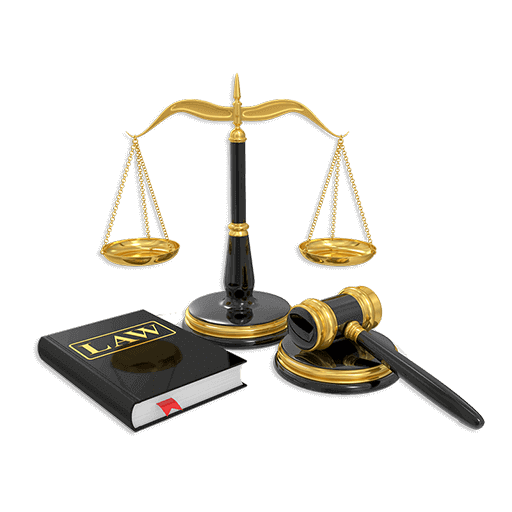CBSE 12th Standard Maths Subject Integrals Ncert Exemplar 4 Mark Questions With Solution 2021
By QB365 on 24 May, 2021
QB365 Provides the updated NCERT Examplar Questions for Class 12 Maths, and also provide the detail solution for each and every ncert examplar questions , QB365 will give all kind of study materials will help to get more marks
QB365 - Question Bank Software
CBSE 12th Standard Maths Subject Integrals Ncert Exemplar 4 Mark Questions With Solution 2021
12th Standard CBSE
-
Reg.No. :
Maths
-
Evaluate the integral: \(\int {x^3\over x^4+3x^2+2}dx.\)
(a) -
Evaluate the integral: \(\int{x^2\over x^4+x^2-2}dx\)
(a) -
Evaluate the integral: \(\int {sin^6\ x+cos^6\ x\over sin^2\ x\ cos^2\ x}dx\)
(a) -
Evaluate the integral: \({\sqrt x\over \sqrt{a^3-x^3}}dx\)
(a) -
Evaluate the following integral
\(\int \frac{x+5}{3 x^{2}+13 x-10} d x\)(a) -
Evaluate the following integral.
\(\int \frac{x^{3}}{x^{4}+3 x^{2}+2} d x\)(a) -
Evaluate the following integral.
\(\int \frac{(2 x-1)}{(x-1)(x+2)(x-3)} d x\)(a) -
Evaluate the following as limit of sum
\(\int_{-1}^{2}(7 x-5) d x\)(a) -
Evaluate the following integral.
\(\int_{0}^{1} x\left(\tan ^{-1} x\right)^{2} d x\)(a) -
Evaluate the following integral.
\(\int_{\pi / 3}^{\pi / 2} \frac{\sqrt{1+\cos x}}{(1-\cos x)^{5 / 2}} d x\)(a)
4 Marks
*****************************************
CBSE 12th Standard Maths Subject Integrals Ncert Exemplar 4 Mark Questions With Solution 2021 Answer Keys
-
\(log\ |{x^2+2\over\sqrt{x^2+1}}|+c\)
-
\({2\over 3\sqrt2}tan^{-1}{x\over\sqrt2}+{1\over 6}log|{x-1\over x+1}|+c\)
-
\(tan\ x-cot\ x-3x+c\)
-
\({2\over3}sin^{-1}\sqrt{x^3\over a^3}+c\)
-
Let \(I=\int \frac{(x+5)}{3 x^{2}+13 x-10} d x\)
\(=\int \frac{(x+5)}{(x+5)(3 x-2)} d x \)
\(=\int \frac{d x}{3 x-2}=\frac{1}{3} \log |3 x-2|+C \) -
Write the given integral as \(\int \frac{x^{2} \cdot x}{\left(x^{2}\right)^{2}+3 x^{2}+2} d x\)
Put \(x^{2}=t\) then above integral reduces to
\(\frac{1}{2} \int \frac{t}{t^{2}+3 t+2} d t\)
\(\log \left|\frac{x^{2}+2}{\sqrt{x^{2}+1}}\right|+C\) -
\(\frac{2 x-1}{(x-1)(x+2)(x-3)}=\frac{A}{x-1}+\frac{B}{x+2}+\frac{C}{x-3}\)
\(\log \left|\frac{\sqrt{x-3}}{(x-1)^{1 / 6}(x+2)^{1 / 3}}\right|+C\) -
\(\frac{-9}{2}\)
-
Let \(I=\int_{0}^{1} x\left(\tan ^{-1} x\right)^{2} d x\)
Now, put \(x=\tan \theta \Rightarrow d x=\sec ^{2} \theta d \theta\)
Upper limit When \(x=1, \tan \theta=1 \Rightarrow \theta=\tan ^{-1}(1)=\frac{\pi}{4}\)
Lower limit When \(x=0, \tan \theta=0 \Rightarrow \theta=\tan ^{-1}(0)=0\)
Now, from Eq. (i), we have
\(I=\int_{0}^{\pi / 4} \tan \theta \cdot \theta^{2} \cdot \sec ^{2} \theta d \theta=\int_{0}^{\pi / 4} \theta_{1}^{2}\left(\tan \theta \cdot \sec ^{2} \theta\right) d \theta\)
\(=\left[\theta^{2} \cdot \frac{\tan ^{2} \theta}{2}\right]^{\pi / 4}-\int_{0}^{\pi / 4} 2 \theta \cdot \frac{\tan ^{2} \theta}{2} d \theta\)
\(\left[\because \int \tan x \sec ^{2} x d x=\frac{\tan ^{2} x}{2}\right]\)
\( =\frac{1}{2}\left[\frac{\pi^{2}}{16}\left(\tan \frac{\pi}{4}\right)^{2}-0\right]-\int_{0}^{\pi / 4} \theta \cdot\left(\sec ^{2} \theta-1\right) d \theta\ {\left[\because \sec ^{2} \theta-\tan ^{2} \theta=1\right]} \)
\(\begin{array}{r} =\frac{1}{2}\left[\frac{\pi^{2}}{16}\left(\tan \frac{\pi}{4}\right)^{2}-0\right]-\int_{0}^{\pi / 4} \theta \cdot\left(\sec ^{2} \theta-1\right) d \theta\ {\left[\because \sec ^{2} \theta-\tan ^{2} \theta=1\right]} \end{array}\)
\(=\frac{\pi^{2}}{32}-\left[\theta \cdot(\tan \theta-\theta)-\int 1 \cdot(\tan \theta-\theta) d \theta\right]_{0}^{\pi / 4}\)
\(=\frac{\pi^{2}}{32}-\left[\theta \cdot \tan \theta-\theta^{2}\right]_{0}^{\pi / 4}+\int_{0}^{\pi / 4}(\tan \theta-\theta) d \theta\)
\(=\frac{\pi^{2}}{32}-\left[\frac{\pi}{4} \tan \frac{\pi}{4}-\frac{\pi^{2}}{16}-0\right]+\left[\log |\sec \theta|-\frac{\theta^{2}}{2}\right]_{0}^{\pi / 4}\)
\(=\frac{\pi^{2}}{32}-\frac{\pi}{4}+\frac{\pi^{2}}{16}+\log \sqrt{2}-\frac{\pi^{2}}{32}-0 \quad\left[\because \tan \left(\frac{\pi}{4}\right)=1\right]\)
\(=\frac{\pi^{2}-4 \pi}{16}+\log \sqrt{2}\) -
Let \(I=\int_{\pi / 3}^{\pi / 2} \frac{\sqrt{1+\cos x} d x}{(1-\cos x)^{5 / 2}}=\int_{\pi / 3}^{\pi / 2} \frac{\sqrt{1-\cos ^{2} x}}{(1-\cos x)^{\frac{5}{2}+\frac{1}{2}}} d x\)
[multiplying numerator and denominator by \(\sqrt{1-\cos x}\) ]
\(=\int_{\pi / 3}^{\pi / 2} \frac{\sin x}{(1-\cos x)^{3}} d x\)
(ii) Put 1 - cos x = t and simplify it. = \(\frac{3}{2}\)
4 Marks






































